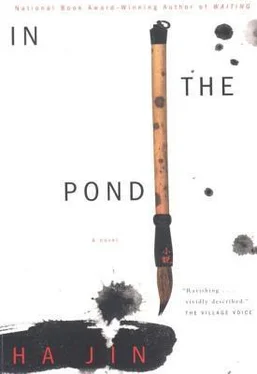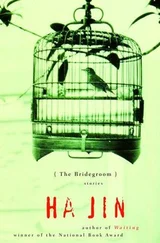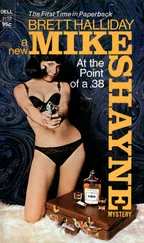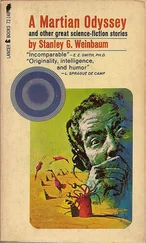Ha Jin - In the Pond
Здесь есть возможность читать онлайн «Ha Jin - In the Pond» весь текст электронной книги совершенно бесплатно (целиком полную версию без сокращений). В некоторых случаях можно слушать аудио, скачать через торрент в формате fb2 и присутствует краткое содержание. Год выпуска: 2014, ISBN: 2014, Издательство: Knopf Doubleday Publishing Group, Жанр: Современная проза, на английском языке. Описание произведения, (предисловие) а так же отзывы посетителей доступны на портале библиотеки ЛибКат.
- Название:In the Pond
- Автор:
- Издательство:Knopf Doubleday Publishing Group
- Жанр:
- Год:2014
- ISBN:978-0-8041-5372-0
- Рейтинг книги:4 / 5. Голосов: 1
-
Избранное:Добавить в избранное
- Отзывы:
-
Ваша оценка:
- 80
- 1
- 2
- 3
- 4
- 5
In the Pond: краткое содержание, описание и аннотация
Предлагаем к чтению аннотацию, описание, краткое содержание или предисловие (зависит от того, что написал сам автор книги «In the Pond»). Если вы не нашли необходимую информацию о книге — напишите в комментариях, мы постараемся отыскать её.
Under the Red Flag, Ocean of Winds
Waiting
In the Pond — читать онлайн бесплатно полную книгу (весь текст) целиком
Ниже представлен текст книги, разбитый по страницам. Система сохранения места последней прочитанной страницы, позволяет с удобством читать онлайн бесплатно книгу «In the Pond», без необходимости каждый раз заново искать на чём Вы остановились. Поставьте закладку, и сможете в любой момент перейти на страницу, на которой закончили чтение.
Интервал:
Закладка:
Strangely, neither Liu nor Ma looked scared when they came to the workshop to question Bin. Liu told him bluntly in the presence of his fellow workers, “You’ve done enough; this is the end. We’ll sue you for libel, and our commune will sue you too!”
“Yes,” Ma said. “You think you’re good at screwing people over, but this time you screwed your own asshole.”
“Tell us who wrote the article,” Liu ordered.
Bin kept silent. Their words unnerved him, so he said he had to go to the latrine and would be back in just a minute to answer their questions. He put a handful of cotter pins on the workbench, held his sides with both hands as though suffering from enteritis, and left. Once outside, he fled to the Second Workshop, fearing the leaders would rough him up.
In Maintenance, Liu and Ma, having waited for twenty minutes, were cursing Bin loudly. “Next time,” Liu said, “we’ll tie him to a bench when we question him. Even if he messes his pants we won’t let him go.”
Ever since the article was published, the telephone in the editorial office of Environment had been ringing continually. Many people called to relate similar stories of their own and begged the editors to report them; at the same time, some officials called and claimed that the article was full of distortions and that the editors must be answerable for the consequences. The Bureau of Environmental Protection of Gold County, which sponsored the newspaper, dispatched two cadres, with a policeman, to the editorial office to investigate the case. In addition, the leaders summoned Jiang Ping to the bureau and rebuked him. They reminded him that the newspaper was a public mouthpiece, not a means for venting private malice and causing social disturbances. Jiang, however, was too stubborn to admit he had done anything wrong and insisted that reporting evil winds didn’t contradict the aim of the newspaper, because the title Environment ought to include both the natural and the social. Nonetheless, his superiors ordered him to write out a self-criticism and make a detailed report on the process of the article’s publication.
The pressure from higher authorities was too much for the bureau to bear. The County Party Committee, the People’s Congress, and the Administration all had demanded that the bureau investigate the case and criticize the editor in chief for distorting the facts and for the damage the article had done to the image of the Party leaders in the countryside.
Within a week the bureau issued a document, taking these measures:
1. Stop shipping out the newspaper at once.
2. The editor in chief, Comrade Jiang Ping, must examine and find out the subjective cause of this mistake. He must turn in his self-criticism as soon as possible.
3. All the editorial staff must learn a serious lesson from this mistake and ensure that it will not happen again.
4. The bureau will administer the final punishment according to Jiang Ping’s attitude and the result of the current investigation.
Still, Jiang believed that what he had done was within the power of his position and that there was no violation of any rule, so he refused to write a self-criticism. He asserted to the bureau’s leaders that to voice the grievance of an underdog was a common practice in journalism. Every one of the Party’s newspapers had done this again and again; why couldn’t Environment do the same?
He was not frightened by the petty bureaucrats, because he had relatives in Beijing. If necessary, they could help him lodge a complaint with the State Council.
After questioning Yen and Song, the investigating team took “Execute the Devils” off the wall of the editorial office, saying they would keep it as evidence of Bin’s bribing the staff. Jiang argued that he had paid twenty yuan for having the painting mounted and owned a part of it now. They then agreed to “borrow” it for a few weeks.
On the same day the team went to Dismount Fort by jeep to talk with the slandered cadres. Secretary Yang received them with a wry face, as though he had a pain in his chest. He denied knowing anything about Shao Bin and insisted that he had been sniped at for an unknown reason. He implored the team to discover the man behind Bin, because it was unlikely that an obscure worker alone would be so bold and so determined to get at him, as if there were a long-standing feud between their clans. Yang suspected that his enemy Ding Liang, the commune’s chairman, had masterminded both the scurrilous article and the disruption of the election. Yang felt Bin was nothing but a gun loaded by Ding. He had told his assistant, Dong Cai, to ferret out the connection between Bin and the Ding faction, but so far Dong hadn’t come up With any concrete evidence.
The investigating team assured Yang that they would look into the matter in a professional way. Then they went to the Harvest Fertilizer Plant and met with Liu and Ma. The two leaders asserted that Bin was a lunatic and had done everything out of malice and selfish motives. They showed the investigators the photographs of Liu’s bitten bottom and of the apples; they emphasized that the only reason the plant hadn’t fired Bin was that he suffered from mental trouble and might do something desperate if provoked. Also, they had always pitied him. Without much effort they convinced the team that the article was full of fiction. So the investigators concluded that at most the article was a one-sided story; they presented this conclusion to the bureau.
Two days later, the bureau issued another document, ordering Jiang Ping to leave his position. Since the leaders neither appointed a new editor in chief nor specified how the newspaper should be run in the future, it was obvious the paper was banned and its staff was laid off for the time being. Though still on the bureau’s payroll, Jiang, Yen, and Song couldn’t believe they had become idle men so suddenly. This idleness was simply beyond their endurance. They wanted to work. Nobody had the right to prevent them from serving the people and the socialist motherland.
The catastrophe, however, created unprecedented solidarity among the editorial staff. For a week they met at Yen’s in the evening, discussing how to make their superiors reinstate the newspaper without taking any of them off the board. Yen’s mother-in-law was ill, and his wife had gone to her mother’s and left the house to him, so Yen’s home became the editorial staff’s secret office, comfortable and unwatched. After two meetings, they concluded that the most important thing to do now was make the case known to the masses, to exert public pressure on their superiors. They all agreed Bin had to play a key role in publicizing the wrongs, since he was the initial victim and the immediate cause of Jiang’s dismissal. Obviously, unless Bin’s case was redressed, it would be impossible for them to get rehabilitated. So Yen sent Bin a letter informing him of what had happened and asking him to come to Gold County as soon as possible. “We have to find effective countermeasures,” he wrote. “Please come to my house directly after you get off the train.”
Reading Yen’s letter on his way to the candy shop on Market Street, Bin almost blacked out, and for a good three minutes he held a concrete pole to keep himself from collapsing. The passersby on bicycles looked back at him with wondering eyes while he motioned again and again, assuring them that he was all right and didn’t need help. Instead of going to the shop, he turned back and hurried home. Now the whole fleet is sunk, he said to himself; because of me they have all lost their jobs, and the newspaper is gone too. Damn! it’s not worth it, the price is too high. They are all ruined.
By instinct he knew it was too late to retreat for self-protection. Besides, if he deserted them now, everyone would curse him, and in the townspeople’s eyes he would become a pile of dog feces stinking for decades. There was no way out, so he had to join forces with them. He felt sick and tired as he showed Meilan the letter, telling her of the new development. How he was longing to take a short vacation, to go somewhere away from this mess and turmoil.
Читать дальшеИнтервал:
Закладка:
Похожие книги на «In the Pond»
Представляем Вашему вниманию похожие книги на «In the Pond» списком для выбора. Мы отобрали схожую по названию и смыслу литературу в надежде предоставить читателям больше вариантов отыскать новые, интересные, ещё непрочитанные произведения.
Обсуждение, отзывы о книге «In the Pond» и просто собственные мнения читателей. Оставьте ваши комментарии, напишите, что Вы думаете о произведении, его смысле или главных героях. Укажите что конкретно понравилось, а что нет, и почему Вы так считаете.






![О Генри - Пимиентские блинчики [The Pimienta Pancakes]](/books/407355/o-genri-pimientskie-blinchiki-the-pimienta-pancake-thumb.webp)





